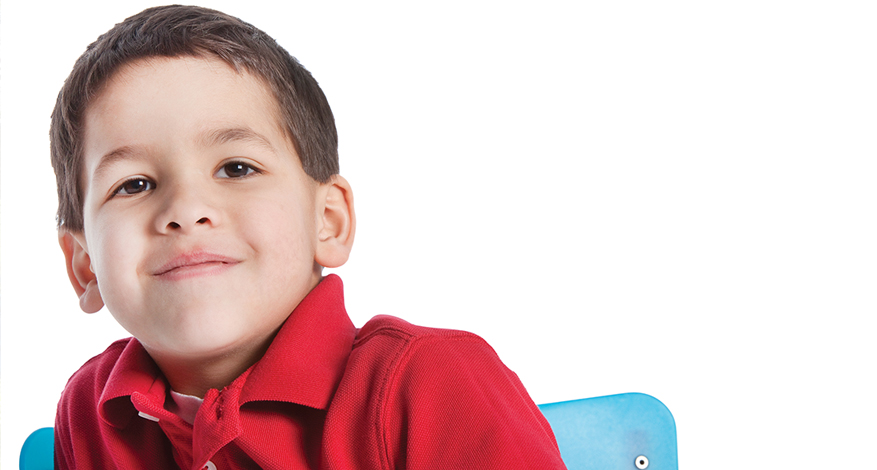Jay’s Story – Concord Y Child Development Center
Three-year-old Jay is full of smiles in the Leap Frog class at the Concord Family YMCA Child Development Center. Normally, this wouldn’t be too surprising for a preschooler — unless you knew all that he has gone through so far in his short life.
Jay’s biological parents had issues with substance abuse and subsequently he was sent to live with a foster family. Jay suffered a traumatic brain injury while in their care and wasn’t expected to live. Half of his skull had to be surgically removed, which means not only that his cognitive skills are limited, but also that he has to wear a protective helmet at all times. Despite all this, Jay is active and thriving with his new foster family. Having his condition, however, comes with its own challenges. He can have trouble focusing and acting out at times.
“Jay is impulsive,” says his classroom teacher, Tawny Sullivan. “We had to put a baby-proof handle on the door to the classroom because if the door is open, he will run. When we go on a walk, someone always needs to hold his hand because he has no safety connections yet. He doesn’t realize the danger of things.” In addition, Tawny says that Jay has a short attention span, and struggles with age-appropriate tasks, like playing with toys. “He ‘pinged’ around the classroom a lot, running from one area to another without ever focusing on one thing,” she says. “Or he would see a bucket that we stow our toys in and just throw it.”
While there is a trend both nationally and locally to suspend or turn away preschool children with extreme behavior problems from programs, the New Hampshire YMCA’s are bucking that trend, working hard to provide the much-needed support and care for challenged children such as Jay. At the Concord Y, we have initiated a pilot program to provide one-on-one attention for Jay. Jay’s aide provides much-needed support so that he can be fully integrated into his classroom. “We call his aide his conscience or angel on his shoulder, to have that guided reminder or redirection so that he can get to a place where he can stay at a choice longer.” She adds that this also gets him used to the idea of what is expected. “Eventually he is going to go off to public school and the Y is helping him prepare for a successful future.”
Jen Adams, his aide, says that Jay’s “a ball of energy” and despite his injuries, he is still “a typical boy.” Helping Jay with his processing and focusing skills has been the biggest benefit to him, she says, so that he can be safe while doing projects or playing with friends. And above all, she marvels at his resilience. “His best quality is the ability to love even after everything he has been through. He is still the biggest sweetheart you’ve ever met. He definitely has behaviors and challenges, but he’s still able to try.”

